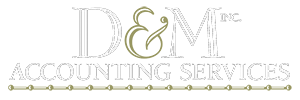When it comes to personal and commercial loans, they have some similarities. As a perfect example, both have interest attached. Also, just as you can do for a personal loan, there are ways to secure the lowest rate when borrowing money for business purposes.
Helpful Tips
Whether you’re starting a new company, expanding an existing one, or perhaps purchasing equipment, it’s imperative to secure the right loan at a low-interest rate. With the following tips, you can accomplish that goal.
1. Look From the Outside In
Before borrowing money, try to look at your company in the same way the lending institution does. Remember, the interest charged on a commercial loan is the lender’s way of protecting itself. Therefore, if a bank or credit union identifies anything of concern relating to your company, it will charge a higher rate. By carefully assessing your business, you have the opportunity to spot red flags that could create an issue.
As an example, you might not have adequate collateral, you have too many outstanding invoices to pay, or perhaps you don’t have all your financial records in order. Even having customers in a niche market can raise concerns. The bottom line is that by fixing potential risks, you will find it easier to secure a commercial loan with a low-interest rate.
2. Up Your Credit Score
For commercial loans, lending institutions often take the owner’s personal credit score into consideration. If your FICO score needs improving, take the appropriate steps to do that before applying for a loan. Regardless of your business size or industry, it’s always a good idea to keep your personal and business finances separate. That way, when you do need to secure a loan, the lender won’t rely on your personal credit history.
3. Select Wisely
Among the different banks and credit unions that loan money to businesses, they all have a unique set of rules. Even looking at the top 10 sources, you would discover different qualifying criteria, terms, and interest rates. Therefore, it’s essential that you spend adequate time researching the details before selecting a lender.
Something else to consider is that lenders often have different loans specific for commercial customers. After doing your homework, you can hone in on the one bank or credit union that offers everything you want, including low interest.
4. Types of Interest
The type of interest charged is another important factor. For instance, if you opt for a commercial loan with simple interest, you would pay the money borrowed within a predetermined amount of time. Also, you would pay more for the loan than the amount borrowed. In other words, if you secured a loan for $100,000 at a 20 percent interest rate, you would repay a total of $120,000 over the life of the loan.
In comparison, you might do better with compound interest. In this case, the lender would recalculate the interest at set intervals. As an example, after paying off $20,000 of a $100,000 loan, the bank or credit union would recalculate interest on the remaining $80,000. If you can pay the money back quickly, this is an excellent way to pay less interest.
5. Refinance Debt
If you have business credit cards and other expenses with high interest, consider refinancing those debts. With a consolidation loan, you would ultimately pay a much lower interest rate than what you do currently. Especially on credit cards, even with excellent credit, you’re paying more in interest than you would with a debt consolidation loan.
Spend Less on Interest
Although interest is part and parcel with commercial loans, there are ways to avoid paying a high percentage as shown by the examples provided. Borrow what you need but without putting your company in a bad financial situation.

